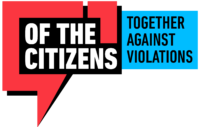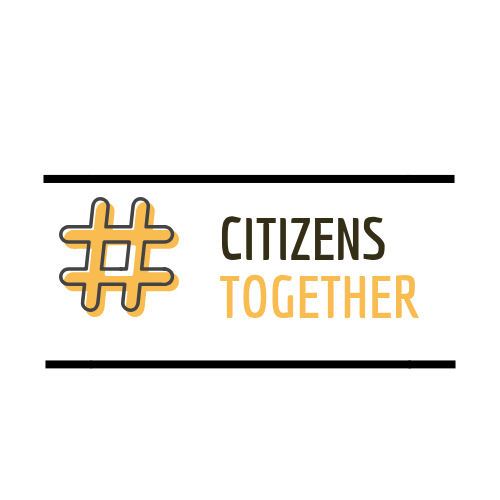A lot of people are talking about climate change, but making sense of it all can be hard. We’ve rounded up 10 of the most essential texts about climate change to get you started—some old, some new, all urgently clear-eyed about the problems facing our planet.
1. “The Uninhabitable Earth” by David Wallace-Wells (2019)
This book provides a comprehensive overview of the current and potential future impacts of climate change on the planet and humanity.
Author: David Wallace-Wells, American Journalist
Year Published: 2019
Best thing about the book: The book is thought-provoking and explores the catastrophic impacts of climate change. It encourages readers to take action and avoid a potentially apocalyptic future.
Find the book: Amazon; Penguin Random House
2. “This Changes Everything: Capitalism vs. The Climate” by Naomi Klein (2014)
This book examines the economic and political factors driving climate change and the need for systemic change to address the issue.
Author: Naomi A. Klein, Canadian author, social activist, and filmmaker.
Year Published: 2014
Best thing about the book: The book provides insightful analysis of the relationship between capitalism and the climate crisis. It argues that the root causes of the crisis lie in the fundamental principles of our economic system. The book challenges readers to question the status quo and envision a more just and sustainable future.
Find the book: Amazon; Goodreads
3. “The Sixth Extinction: An Unnatural History” by Elizabeth Kolbert (2014)
This book explores the current mass extinction event caused by human activities, including climate change, and its impact on biodiversity.
Author: Elizabeth Kolbert, American Journalist
Year Published: 2014
Best thing about the book: The book discusses an informative examination of the ongoing mass extinction of species, caused primarily by human activities. The writing is both compelling and accessible, making complex scientific concepts easily understandable for a general audience. The book’s emphasis on the urgent need for action to protect the planet’s biodiversity is particularly powerful.
Find the book: Amazon; Goodreads
4. “Drawdown: The Most Comprehensive Plan Ever Proposed to Reverse Global Warming” by Paul Hawken (2017)
This book presents a comprehensive plan to reverse global warming, including solutions for reducing greenhouse gas emissions.
Author: Paul Hawken, American environmentalist, author, economist, and activist.
Year Published: 2017
Best thing about the book: The book provides a comprehensive analysis of 100 of the most effective solutions to reverse global warming, based on current research and real-world implementation. The emphasis on concrete actions that individuals, communities, and governments can take to reduce carbon emissions and transition to a more sustainable future makes this book a valuable resource for anyone seeking to make a positive impact on the environment.
Find the book: Amazon; Goodreads
5. “Climate of Hope: How Cities, Businesses, and Citizens Can Save the Planet” by Michael Bloomberg and Carl Pope (2017)
This book presents a positive and actionable vision for addressing climate change, highlighting the role of cities, businesses, and individuals in creating change.
Authors: Mike Bloomberg, American businessman, politician, philanthropist, and author; Carl Pope, American Environmentalist.
Year Published: 2017
Best thing about the book: The book provides an optimistic and empowering message about the potential for effective climate action at the local level. It showcases inspiring examples of cities, businesses, and individuals that are making a difference in the fight against climate change, while also providing practical advice for how others can follow suit. The author’s emphasis on the economic and social benefits of taking action on climate change, as well as the potential for collaborative solutions, makes this book an essential read for anyone interested in sustainability and environmental stewardship.
Find the book: Amazon; Macmillan
6. “The Hidden Life of Trees: What They Feel, How They Communicate” by Peter Wohlleben (2015)
This book explores the complex and interconnected ecosystem of the forest and how it is impacted by climate change.
Author: Peter Wohlleben, German forest scientist and author.
Year Published: 2015
Best thing about the book: The book depicts a fascinating exploration of the complex and interconnected world of trees. Wohlleben’s writing is both lyrical and informative, revealing the inner workings of trees and the vital role they play in our planet’s ecosystems. The book challenges readers to rethink their understanding of the natural world and the relationship between humans and the environment. Through Wohlleben’s storytelling, readers gain a deeper appreciation for the beauty and wonder of the natural world.
Find the book: Amazon; Flipkart; Goodreads
7. “Climate Justice: Hope, Resilience, and the Fight for a Sustainable Future” by Mary Robinson (2018)
This book explores the intersection of climate change and social justice, and the need for an equitable response to the crisis.
Author: Mary Robinson, Irish politician.
Year Published: 2018
Best thing about the book: The book explores the intersection of climate change and social justice, highlighting the disproportionate impact of the climate crisis on marginalized communities and advocating for a more equitable and inclusive approach to climate solutions. Through personal stories and case studies from around the world, Robinson offers a compelling vision for a sustainable future that prioritizes both the health of the planet and the dignity of all people. The book inspires readers to join the fight for climate justice and to work towards a better world for all.
Find the book: Amazon; Goodreads
8. “The Water Will Come: Rising Seas, Sinking Cities, and the Remaking of the Civilized World” by Jeff Goodell (2017)
This book explores the impacts of sea level rise on coastal cities and communities and the urgent need for action.
Author: Jeff Goodell, American author
Year Published: 2017
Best thing about the book: The book provides a clear and accessible overview of the science and politics of sea-level rise, as well as the real-world impacts on people and places around the world. The book challenges readers to consider the long-term consequences of climate change and the need for proactive and collaborative solutions to address the crisis. Through its vivid storytelling and rigorous analysis, the book offers a sobering but ultimately hopeful vision for the future of our planet.
Find the book: Amazon; Goodreads
9. “The Climate Casino: Risk, Uncertainty, and Economics for a Warming World” by William Nordhaus (2013)
This book provides an in-depth analysis of the economic impacts of climate change and the potential for market-based solutions.
Author: William Dawbney Nordhaus, American economist
Year Published: 2013
Best thing about the book: The book offers a comprehensive analysis of the risks and uncertainties associated with climate change, as well as the economic tools and strategies that can be used to address the crisis. The emphasis on the importance of international cooperation and policy solutions is particularly timely and relevant in the current global climate. Through its rigorous analysis and practical recommendations, the book is an essential read for anyone interested in the economic dimensions of the climate crisis.
Find the book: Amazon;
10. “The Climate Crisis: An Introductory Guide to Climate Change” by David Archer and Stefan Rahmstorf (2010)
This book provides a comprehensive introduction to the science and impacts of climate change, as well as potential solutions for addressing the crisis.
Authors: David Archer, American computational ocean chemist, and geophysical scientist; Stefan Rahmstorf, German oceanographer and climatologist.
Year Published: 2010
Best thing about the book: The book provides a clear and detailed overview of the fundamental principles of climate science, including the causes and consequences of global warming, and the impacts on the natural world and human society. The authors make use of engaging visuals and relatable examples to help readers grasp complex concepts and scientific data. The emphasis on evidence-based analysis and the scientific consensus on climate change makes this book a reliable and trustworthy resource for those seeking to understand the climate crisis.
Find the book: Amazon; Abebooks; Cambridge University Press



